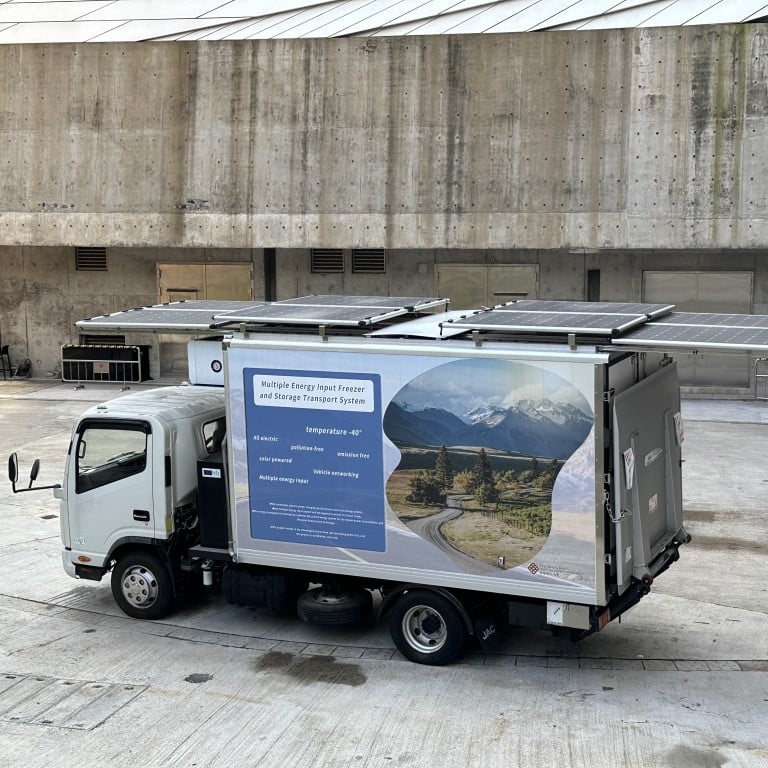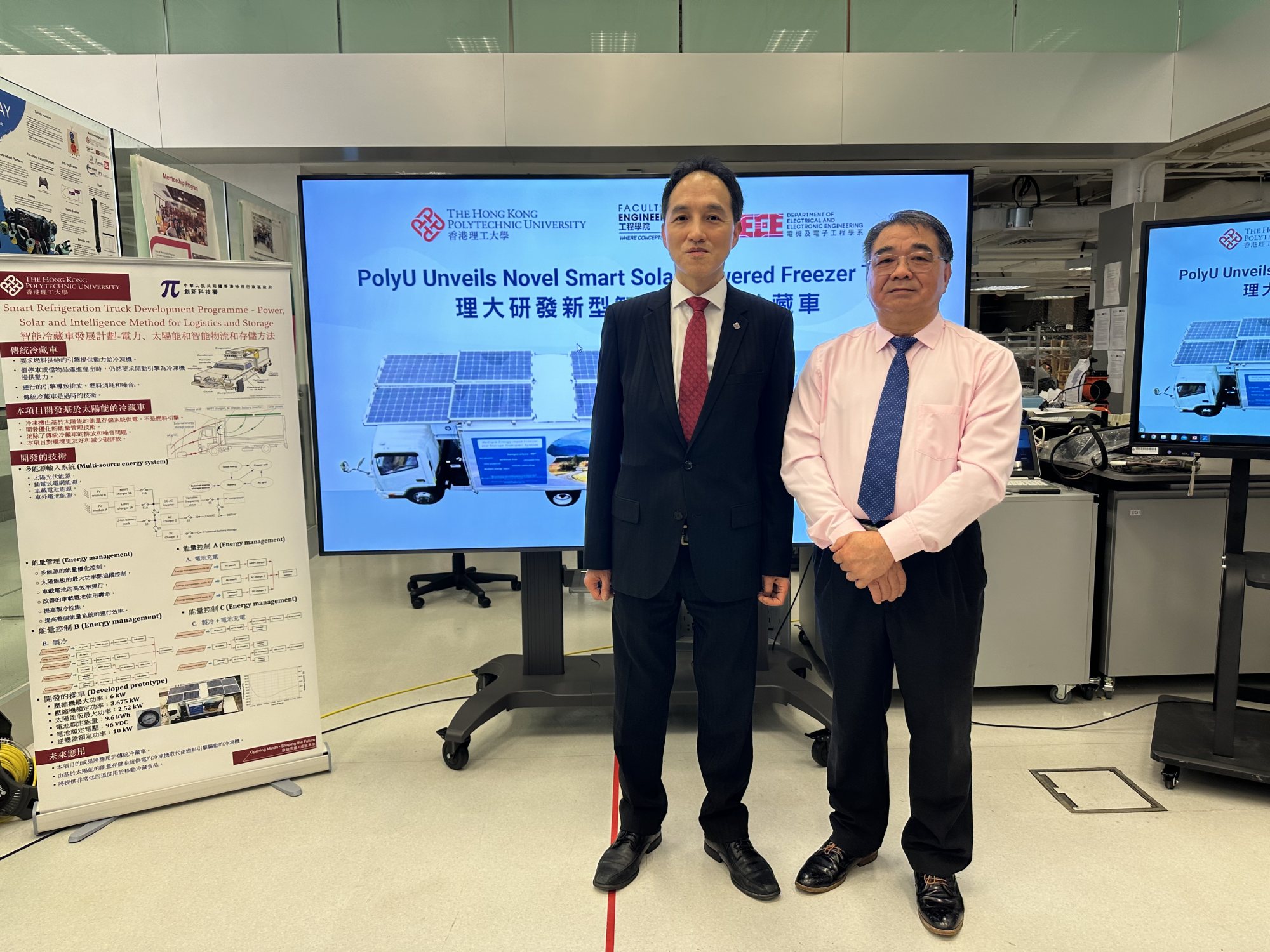
Hong Kong PolyU teams up with Sunlight Eco-tech to make solar-powered freezer lorries
- A single fuel-driven truck emits 16 tonnes of carbon annually, and to offset these emissions, about 760 trees need to be planted, PolyU research shows
The plan to sell 1,000 units over three years comes on the heels of a one-year research project conducted by the PolyU team.
“We aspire for this research project to take a leading role in encouraging the transport sector to embrace green technologies more readily and contribute more to reducing emissions and achieving carbon neutrality,” said Eric Cheng, professor of the department of electrical and electronic engineering at PolyU at the launch event on Thursday afternoon.
The vehicle, which comprises a solar-powered freezer system and features a vehicle-connected power storage and sharing technology, will require just six months to start paying for itself as the truck owners avoid hefty fuel bills, said Eric Mak, CEO of Sunlight Eco-tech, a sponsor of the project and supplier of the lorry’s solar panels.
“We hope to roll-out the first vehicle for sale in around four months,” said Mak at the launch event. “We also plan to sell 1,000 units in Hong Kong in three years. We will also introduce our solar-powered freezer truck to the market in Australia.”

The project is aimed at promoting the transformation from traditional fuel-driven freezer systems to smart electric-driven systems, as well as strengthening the wider adoption of solar energy. The project received over HK$4.9 million in funding from the government’s Innovation and Technology Fund last June, according to the fund’s website.
Hong Kong Science Park-based Sunlight Eco-tech, Australian firm Advanced Sunlight, and Hong Kong’s electrical and mechanical services department are co-sponsors of the project, according to the website.
Currently, there are around 5,000 freezer trucks in Hong Kong, and this number is expected to double in the next few years, said PolyU’s Cheng, who also led the project’s research team.
These vehicles are all powered by fuel engines, which emit a significant amount of exhaust gas and noise, he added.
A single fuel-driven lorry consumes one to three litres of diesel per hour on average, emitting 2.7 to 8.1kg of carbon dioxide, resulting in annual emissions of around 16 tonnes of carbon, according to calculations from PolyU. To offset these carbon emissions, about 760 trees need to be planted, said Cheng, underlining the extent of the pollution by conventional trucks.
Eight solar photovoltaic (PV) panels are installed on the roof of the freezer truck with the capacity to provide 2.5 kilowatt hours of electricity, which can be extended to increase the truck’s power output to enhance its energy efficiency. The truck is also equipped with an energy storage device that captures and stores the electric energy generated, providing additional energy for the vehicle’s freezer system.
It also has a lithium-ion battery that can be charged using standard electric vehicle charging facilities. When the solar energy storage is loaded and the battery is fully charged, it can power the freezer system for up to four hours. The freezer truck can also connect to other vehicles for charging and energy sharing.
The on board refrigeration system can maintain temperatures as low as -45 degrees Celsius, and can continue operating even after the electric engine is turned off, effectively transforming the vehicle into a mobile freezer unit. This feature can also help address the shortage of freezer warehouses in Hong Kong, said PolyU’s Cheng.

